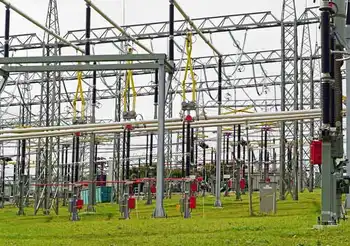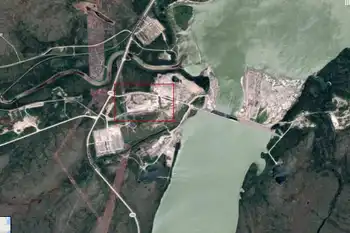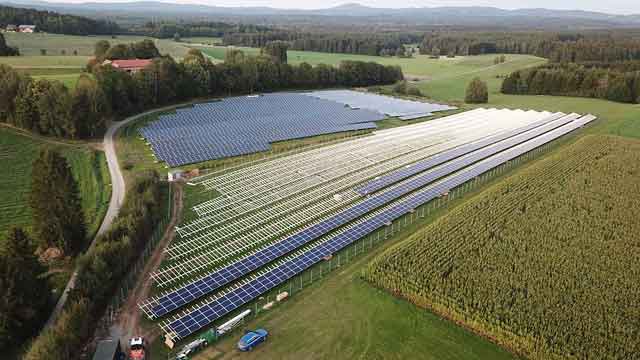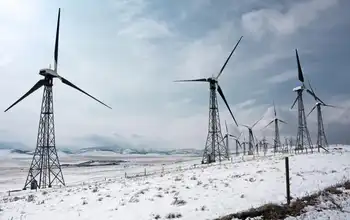Fire at nuclear plant in Germany reignites debate about exit from nuclear power
By Associated Press
Arc Flash Training CSA Z462 - Electrical Safety Essentials
Our customized live online or in‑person group training can be delivered to your staff at your location.

- Live Online
- 6 hours Instructor-led
- Group Training Available
The contoversy led Swedish-based utility Vattenfall AG to dismiss its German head over a fire at the Kruemmel plant in northern Germany, and has sharpened tension over energy policy in Chancellor Angela Merkel's government.
The debate could be stoked by a far more serious incident recently at one of the world's most powerful nuclear plants in Japan, where a strong earthquake caused a transformer fire and a radioactive water leak at a facility in the northwest of the country.
The fire in a transformer building at Kruemmel on June 28, along with the temporary closedown of a second plant, Brunsbuettel, on the same day were "no promotional events for an extension of running times for nuclear power plants," said Environment Minister Sigmar Gabriel.
The fire at Kruemmel near Hamburg was brought under control with no injuries within several hours and no radioactivity leaked. But the investigation revealed flaws in communication during the incident between employees at the plant and the main operator, Vattenfall Europe AG.
Vattenfall, criticized for being slow to cooperate with investigators, recently fired Bruno Thomauske, the head of its German branch. The company said in a statement that "we want to do everything to regain trust that has been lost.... We will do everything to eliminate future mistakes and shortfalls."
The power plant in Brunsbuettel, also operated by Vattenfall, went online again after a problem at the facility's non-nuclear part was fixed.
The incidents boosted nuclear critics like Gabriel who support sticking to the 2000 shutdown law passed by the previous government of Social Democrats and Greens, under which Germany would phase out all of its 17 nuclear power plants by 2021.
Chancellor Angela Merkel's Christian Democrats are opposed in principle to abandoning nuclear energy. But they agreed to keep the shutdown plan when she and her conservatives forged the current coalition government with the left-of-center Social Democrats.
Since then, as concerns over global warming have grown, Merkel has pointed out the clash between the nuclear shutdown and Europe's goal of reducing greenhouse gases.
Power from nuclear plants, which produce little in the way of the gases believed to cause global warming, would likely be replaced by electricity generated using natural gas and coal. Environmentalists urge the use of renewable energy such as electricty generated by windmills instead, but Germany's utilities say power demand will outstrip growth in renewables, meaning more use of coal and natural gas.
The incidents, which have received widespread news coverage in Germany, are making it harder for utilities and conservatives to challenge the nuclear pullout, and give Gabriel ammunition for decisions to refuse to extend individual power plants operating lives by transferring running time from other reactors, as allowed by the 2000 law.
"The incidents at Kruemmel and Brunsbuettel show in a haunting way that the so-called remaining risk does exist and that it is way too high to take it into account longer than it is allowed by law," Gabriel said in a recent interview.
A spokesman for the Greenpeace environmental group said that Kruemmel did not meet the necessary safety standards. "It is an old plant and therefore it should be shut down," Thomas Breuer said on N24 television. The Kruemmel reactor came online in 1983 and supplies about 30 percent of the region's power, according to Vattenfall.
The local atomic energy agency in the northern town of Kiel meanwhile announced that it will question the plant's shift supervisor and several workers while the plant remains closed.
Vattenfall had initially refused to identify to investigators the employees who were on shift during the fire, and only revealed their names after investigators threatened to have police search the company.
The utility also announced that it would appoint an independent group of experts to analyze the incident and come up with a plan on how to improve security.
Nuclear power has long been a touchy subject in Germany, especially since the 1986 explosion and fire at the Chernobyl nuclear power plant in what was then the Soviet Union sent clouds of radioactive particles all the way to Germany.
As E.ON, which jointly owns the plant with Vattenfall AG, said in a statement, the incidents at Kruemmel and Bruensbuettel "have not helped to further consolidate the clearly improved image of nuclear energy."
Members of Merkel's governing conservative party have been conspicuously quiet amid news stories that work against their position that nuclear power is safe and needed.
"Safety concerns have to be a top priority when it comes to nuclear energy," Thomas Strobl, the party's secretary general for the southern state of Baden-Wuerttemberg, said. "Whoever does not understand this, discredits nuclear energy and does not live up to the responsibilities of operating such plants."











